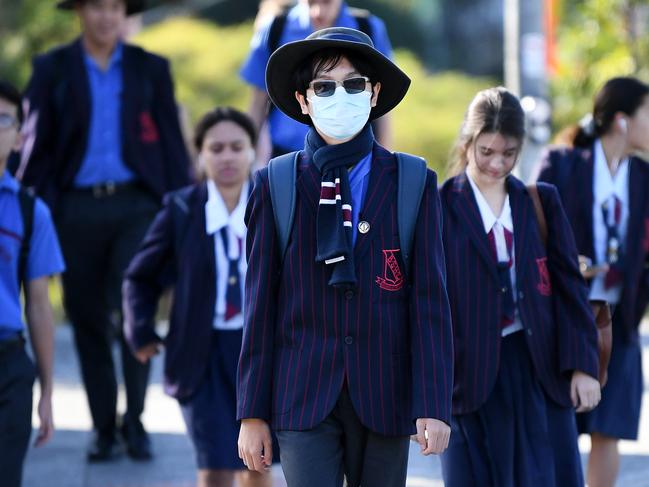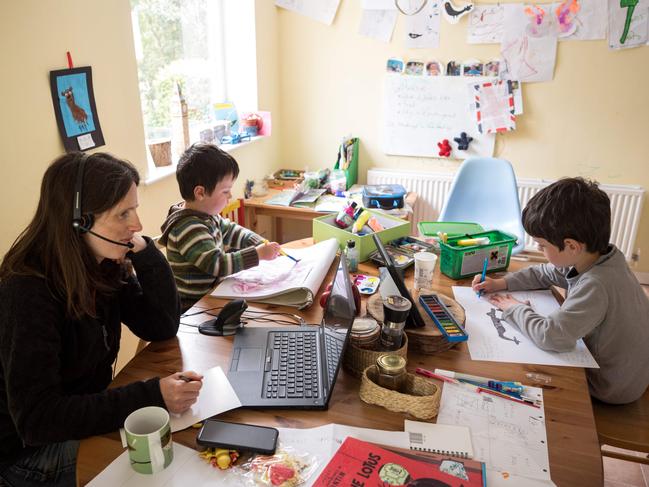Weeks of lost learning puts Australia further behind
As students start returning to schools, State Governments are now scrambling to catch them up on what they missed during the COVID-19 epidemic.
National
Don't miss out on the headlines from National. Followed categories will be added to My News.
School shutdowns have amounted to weeks of lost learning that must be urgently addressed according to new research from The Centre for independent Studies and most impacted were students from Victoria, NSW, Tasmania and the ACT.
The study said the era worsened the existing inequities with disadvantaged students already approximately 37 weeks behind in numeracy and 35 weeks in reading.
The policy paper ‘Pain without gain: Why school closures are bad policy’ reveals the extent of the lost learning across states and urge Governments to act quickly to allow kids to catch up.

It also says all schools must assess students to identify those who have fallen behind, and provide intensive intervention to ensure they catch up with their peers.
The paper found:
•In Victoria, Tasmania, the ACT, and New South Wales disadvantaged students face between two and three weeks of lost learning in numeracy and between one and two weeks of lost learning in reading.
•In Queensland, disadvantaged students face around two weeks of lost learning in numeracy and one week of lost learning in reading.
•In South Australia, Western Australia, and the Northern Territory disadvantaged students are likely to be only marginally affected.
“The decision by state and territory governments to close schools went against the health, economic, and educational evidence. It was clear there was little health benefit, while there were substantial economic and educational costs,” the report reads.

Co-author Glenn Fahey said a more coherent policy response from state and territory governments was needed.
“Victoria and Tasmania should accelerate their school reopening process,” he said.
“And it’s vital that all schools assess students to identify those who have fallen behind, and provide intensive intervention to ensure they catch up with their peers.
“This wouldn’t necessarily require more taxpayer funding if existing resources are better targeted toward addressing students’ learning gaps in core literacy and numeracy.”
The report said schools closed needlessly, given medical advice was to remain open, and Mr Fahey said the loss of learning came at a time when Australia is already behind the international education curve.

“Any additional unnecessary education loss is a problem and a policy concern,” he said.
“All students will be impacted right through to the least advantaged. There is huge variability.”
The report finds that Australia’s school system should have been better prepared and note that the loss of NAPLAN accentuates the issue as it limits opportunity for schools to benchmark student progress.
“The learning lost due to Australian school closures is not irretrievable, but it does require state and territory governments to assess students on return to school, identify those who have fallen behind, and provide intensive intervention to ensure they catch up with their peers,” the report reads.
“This is especially important, given the NAPLAN tests are not going ahead in 2020.”
